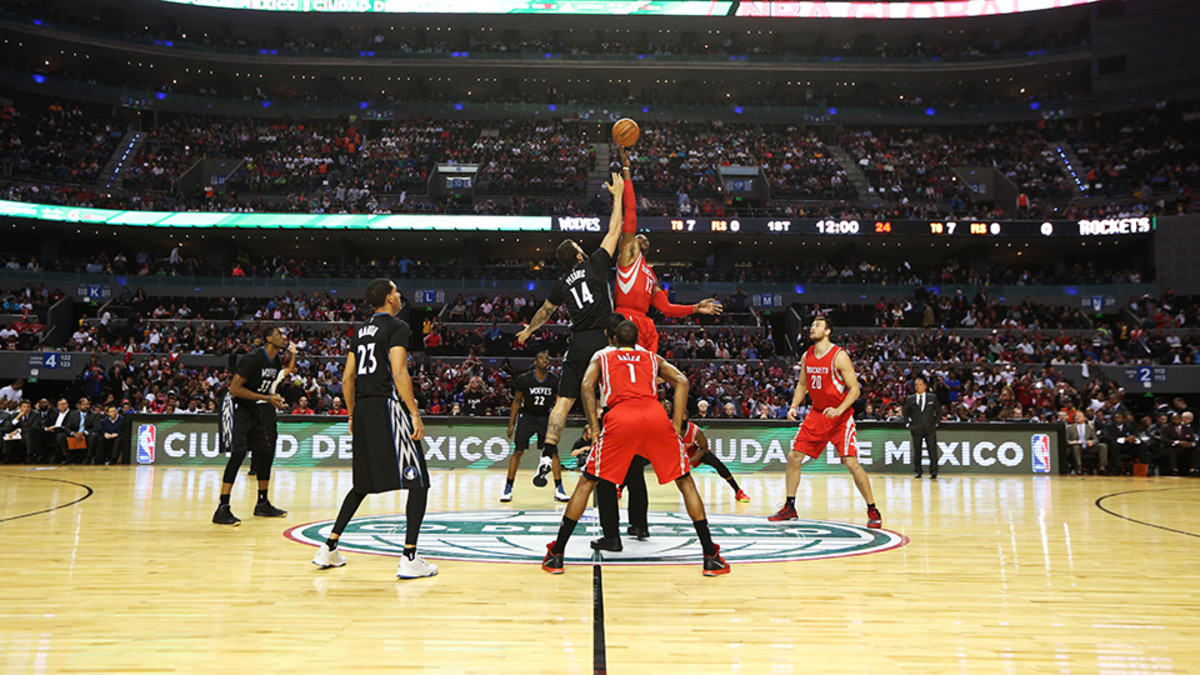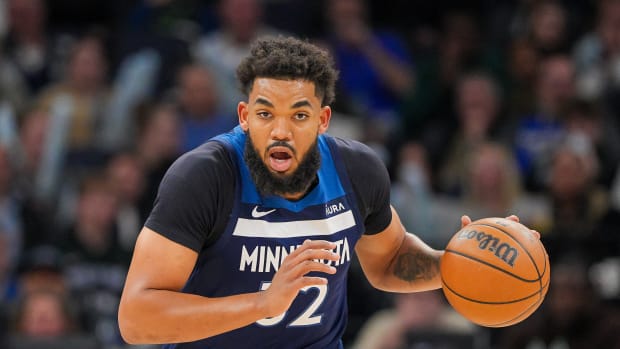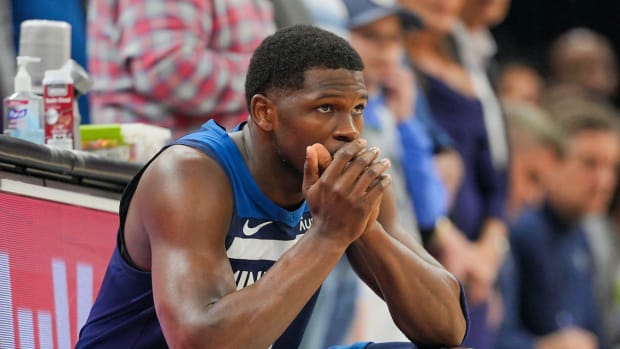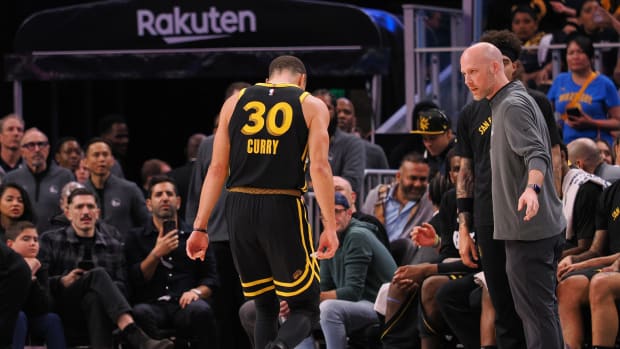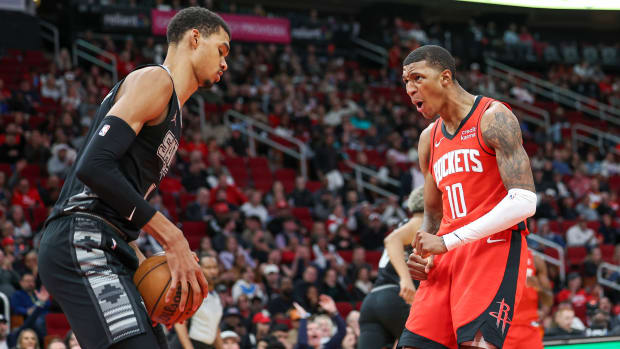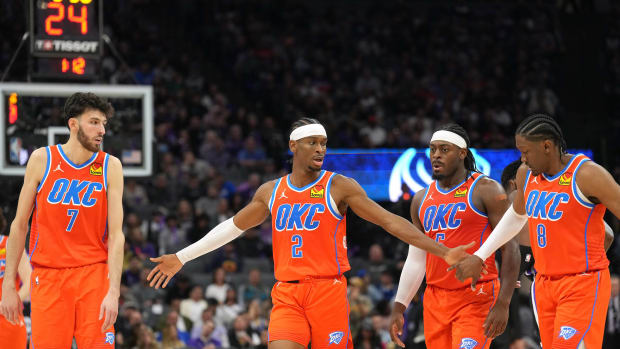Celtics-Kings meeting in Mexico is latest matchup in NBA's next hotbed
The NFL has a crush on Europe, one it isn’t bashful about promoting. Regular season games in London, the league’s tentacles extending into Germany, whispers of planting a team (hey ya, Jacksonville) across the Atlantic growing louder by the day. The NBA? They like Europe, too. Training camp trips to France, Italy and Turkey have become routine. Yet in recent years the NBA has directed more and more resources south, to Mexico, to a densely populated, Spanish-speaking market the league believes has limitless potential.
The Celtics and Kings will play in Mexico City on Thursday. It will be the league’s second straight regular season game in Mexico City Arena, the 22,000 seat, $300 million building that opened in 2012. (A third, a game between Minnesota and San Antonio in 2013, was canceled after a faulty generator poured smoke into the arena). The first was a success, with 18,996 fans filing in to see Houston-Minnesota last fall. The NBA expects the next to be even better. “We really believe in the potential in this market,” says Philippe Moggio, the NBA’s Senior Vice President who oversees the league’s Latin America operations. “Everything we are seeing suggests this region is not just ready to grow, but grow quickly.”
LeBron's Time: Cavaliers star feeling the urgency to bring title to Cleveland
Indeed, the league says there are 13 million NBA fans in Mexico (population: 122 million), with 2.2 million in the greater Mexico City area. Those figures would give Mexico City the league’s third largest fan base, behind New York and Los Angeles. An eight-man office there tracks rapidly growing statistics from social media (NBA Mexico’s Facebook/Twitter accounts have grown 172% per year since 2012) to live streams (189,000 last season) to League Pass sales (up 164% since ’12). Soccer remains entrenched as Mexico’s top sport, but the NBA believes basketball is right behind it.
The league has been selective about its Mexico matchups. San Antonio and Houston were chosen, for obvious geographical reasons. Boston, according to Moggio, is one of the five most followed teams in Mexico, and the league tabbed Sacramento, largely due to a desire to have a cross-conference game. And while teams haven’t been tripping over each other to get in on the Mexico trip—they aren’t big on going to Europe, either—they understand the value in them. “We don’t wish the NBA was a global game—it is,” says Celtics president Rich Gotham. “Mexico is a logical market. We’re happy to do our part.”
• MORE NBA: Kobe retirement similar to MJ's | Curry's case for Sportsman
Nobody is throwing around the E word yet. “We don’t have specific plans to expand to Mexico City in the near future,” says NBA commissioner Adam Silver. Security is a concern. In 1997, the Houston Rockets traveled to Mexico City for a regular season game. When they arrived, they were warned: Be wary of traveling to certain areas because kidnappings were rampant. In a briefing, Rockets players were told that the U.S. had recently set up an office in Mexico to deal with the kidnapping of U.S. citizens. That day the top official from that office was kidnapped. Things haven’t improved much. There were more than 100,000 kidnappings in 2012, according to the U.S. State Department, and a recent survey found that total crimes in 2014 (33.1) were up nearly 50% from 2011.
And while early numbers are encouraging, the date is limited. Consider: While a handful of regular season games can draw big crowds, there are significant questions if an impoverished fan base—46.2% of the population lives in poverty, according to Forbes—will support a team 41 times a season. “You sell tickets for five or 10 bucks a pop, you can sell out,” says a team official. “Will you be able to charge prices comparable to other arenas? That’s the question.” And while television ratings are up, the NBA is eager to see growth over the next few years. “The first step is to build a fan base and a television market,” says Gotham. “You think cautiously, move slowly. The potential is there. The NBA is the preeminent basketball brand; you know it’s going to grow.”
Bottom line: Don’t expect the Southwest Division to grow anytime soon. Still, the NBA intends to continue ramping up its efforts, selling Mexican fans its game before the NFL or Major League Baseball can sell theirs. If the time comes when the landscape is ripe for a U.S league to expand to Mexico, the NBA will likely be the first one to get there.






























